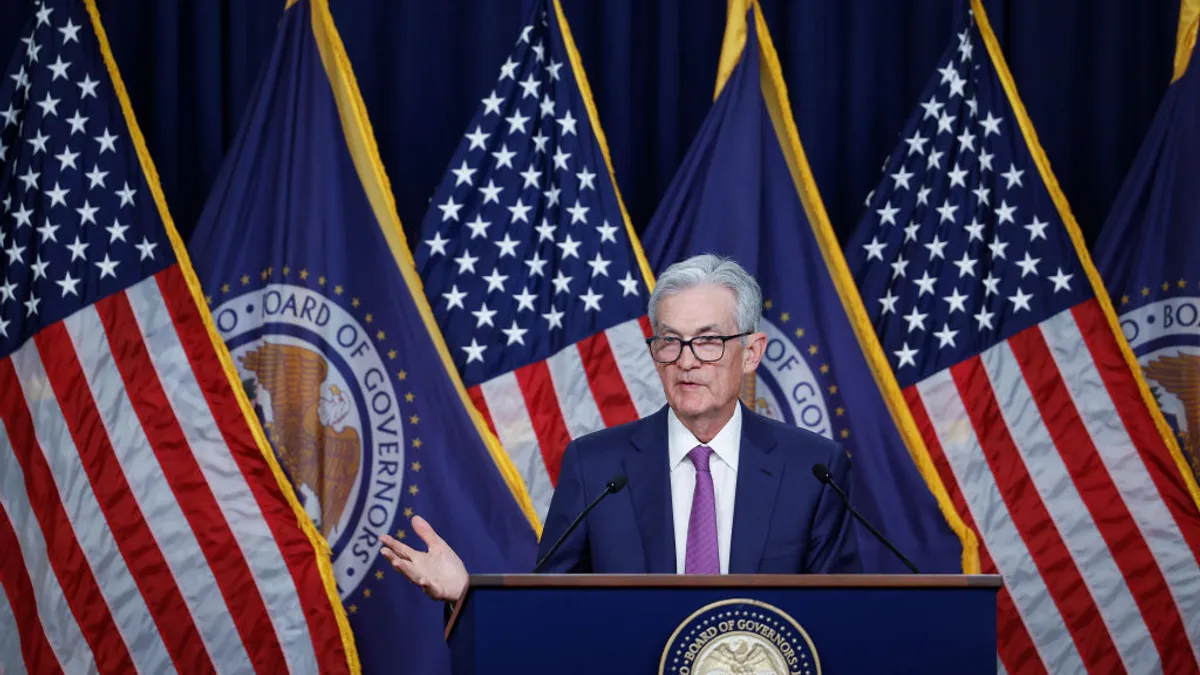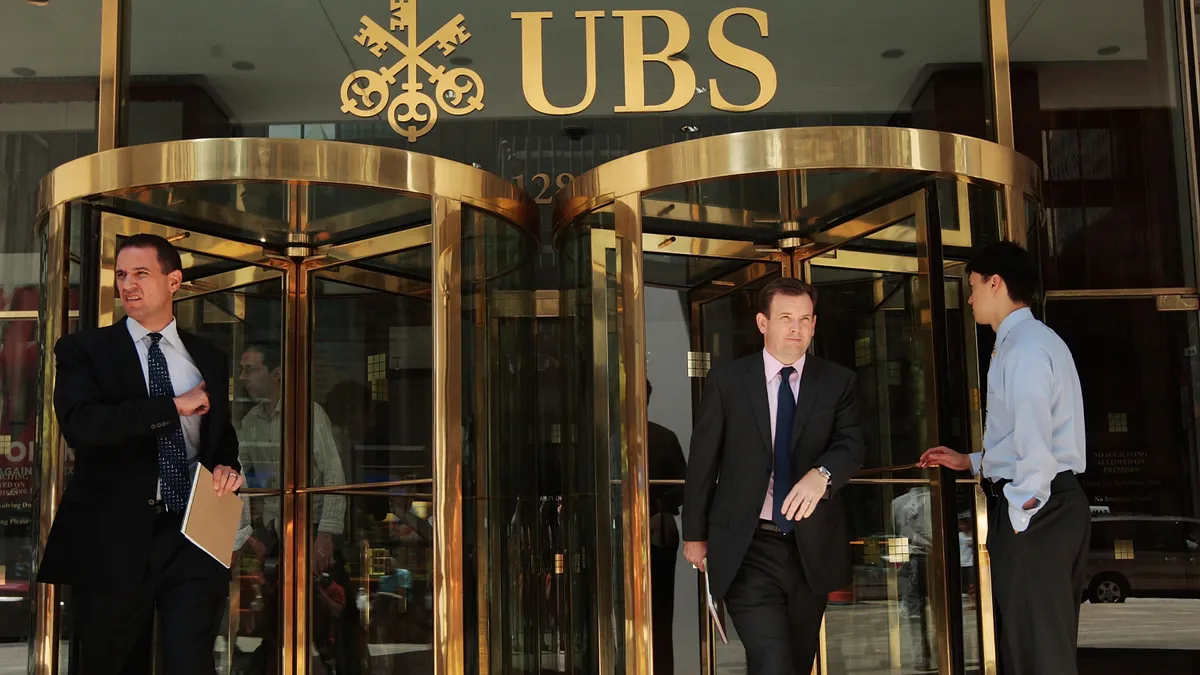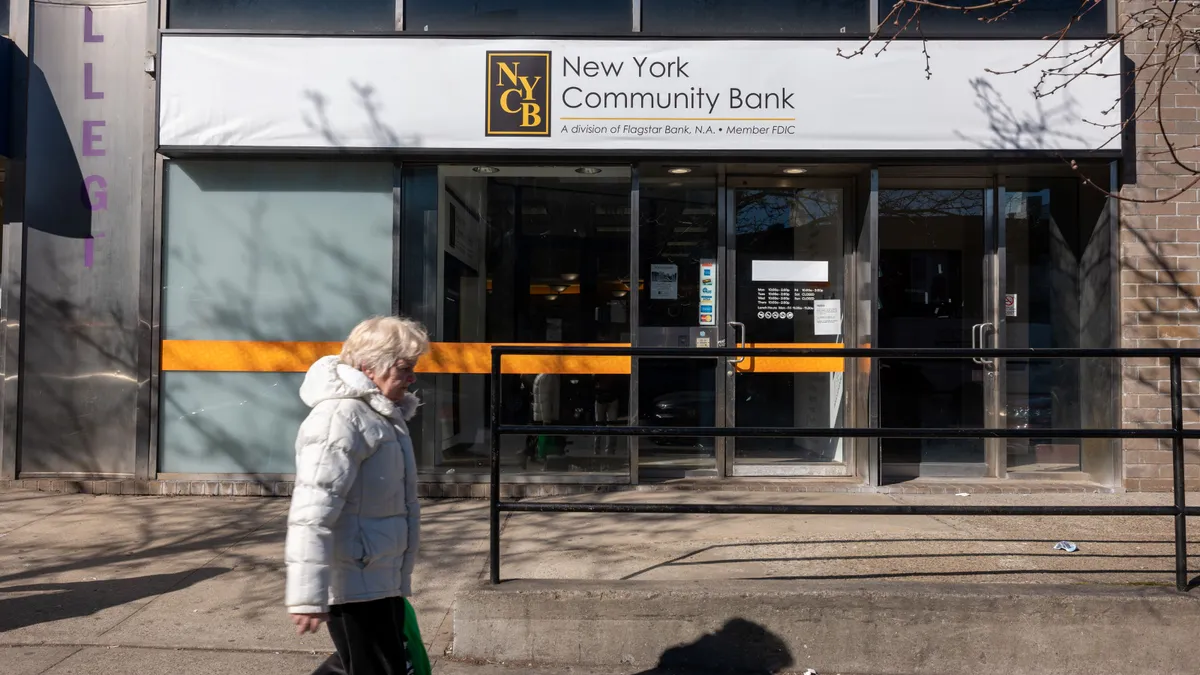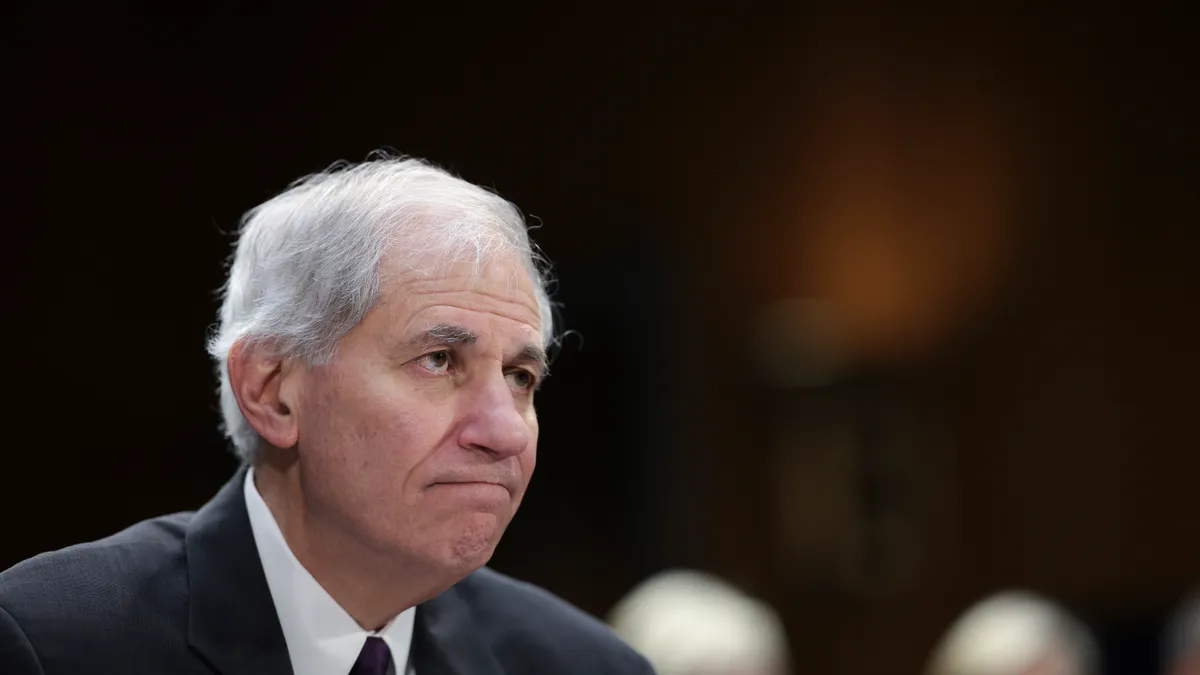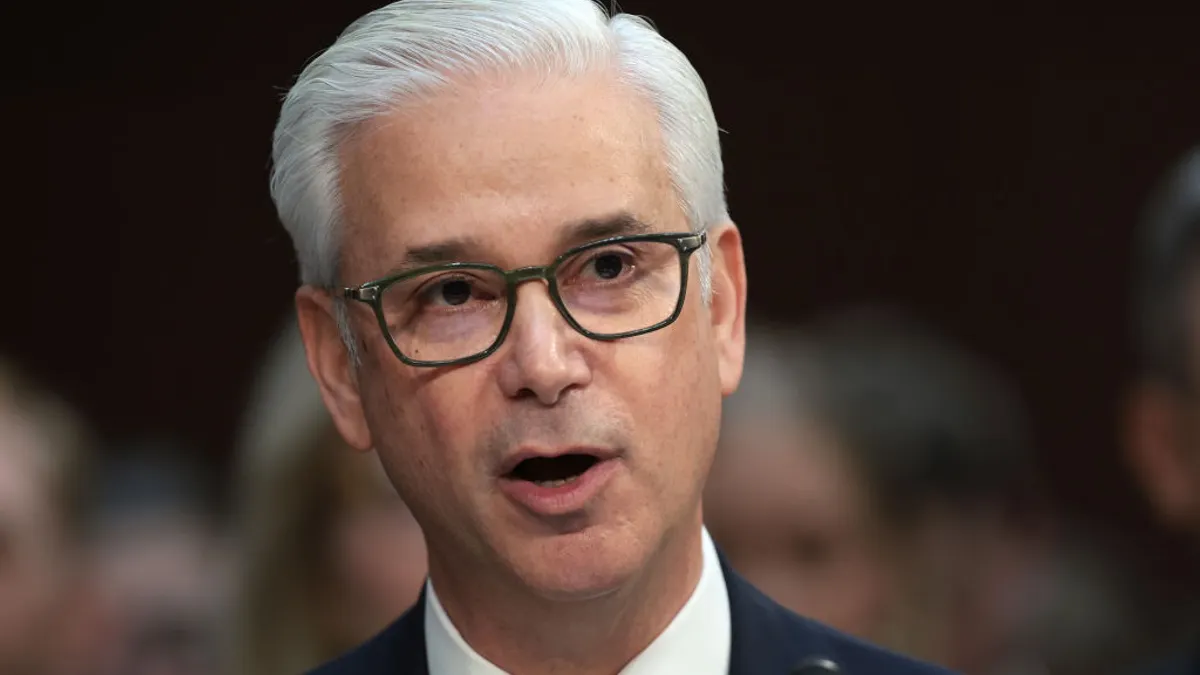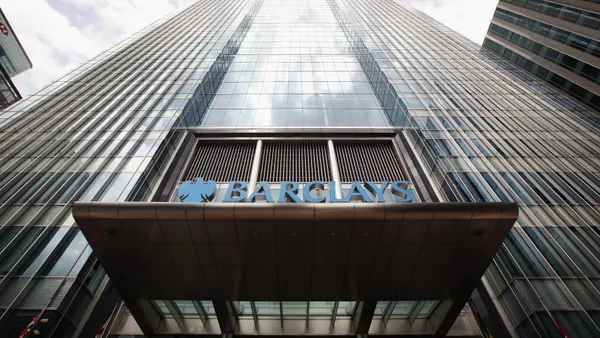Comedy abides by a rule of threes: Three jokes on the same topic are delivered in rapid succession — each with a consequence bigger than the last.
To be sure, there is nothing funny about any of the three storylines connected to Deutsche Bank ahead of its annual general meeting next week.
The German lender announced Tuesday that it's doubling its financing of green activities — to include loans, bond placements and sustainable assets that it manages for private clients. The €200 billion commitment by 2025 marks the bank's first quantified target for environmentally minded investment.
It was the kind of positive news story that allows a big company to control its own narrative. But in the 24 hours that followed, two other headlines may have hijacked the bank's chance at positive vibes only.
In an internal memo sent to staff Tuesday night, the bank announced it was restarting job cuts — part of an 18,000-position cull it launched last July but paused six weeks ago as the coronavirus crisis bred uncertainty. The pandemic "made it even more of an imperative that we stick to our transformation plan," Chief Transformation Officer Fabrizio Campelli and human resources chief Michael Ilgner wrote in the memo, adding the resumption of cuts is "not something we do lightly," according to the Financial Times.
A day later, the German newspaper Süddeutsche Zeitung reported that the Federal Reserve Bank of New York, in a March 31 letter, reprimanded Deutsche Bank for failing to solve issues that led it to classify the bank's U.S. operations as being in "troubled condition" in 2017. The New York Fed also highlighted continuing concerns about Deutsche’s money-laundering and compliance measures.
"Troubled condition" is the second-lowest status the regulator can give on a five-point scale that measures capital adequacy, asset quality, management, earnings, liquidity and sensitivity to market risk. The scores generally aren't made public, but the low score is a rarity for a big bank.
Deutsche passed the Federal Reserve's stress tests last year for the first time, after failing in 2015, 2016 and 2018.
"The bank has made some progress," a person familiar with the regulatory situation told the Financial Times. "It’s taking a little longer than we thought."
The bank's CEO, Christian Sewing, is set to address the stress test results next week in a speech at the annual general meeting — the text of which Deutsche has already published. "Are we there yet regarding our controls? The answer is no," Sewing is set to say.
In the speech, Sewing also will announce that the bank's global management committee will forgo a month’s pay. Executive pay cuts aren't exactly unprecedented in COVID times, although many, including leaders at Santander, Barclays, HSBC and Standard Chartered, are donating the forgone pay to coronavirus relief. There is no indication of such an effort at Deutsche.
But that could be just a symptom of the bank's desire to hit its previously stated cost-cutting goal by 2022. Stephan Szukalski, who leads the German union of bank employees, told the Financial Times each of Deutsche's scenarios to reduce headcount "refer[s] to voluntary termination agreements and early retirement."
"This is happening in a relatively quiet way and on a voluntary basis," he said.
The coronavirus also appears to have influenced the bank's approach to cost cutting. "Our experiences over the past eight weeks have also demonstrated to us how a new way of working can drive cost efficiencies, for example, through reduced external spend, travel and real estate," Campelli and Ilgner said in their memo.
For all of the bank's talk of cost cutting, Sewing appeared, in his published speech, to hint at future deal-making, saying the bank's global scale and strength in several markets "is something that will help us when consolidation in the European banking sector happens — as it inevitably will and must."
Still, money may not be the only green on Deutsche's mind. Sustainability, although it's being overshadowed by the coronavirus at the moment, "is bound to come back into the spotlight — and all the more intensely," Sewing is set to say in introducing the bank’s environmental commitment.
Deutsche’s €200 billion pledge, on paper, more than doubles Citi’s $100 billion environmental finance goal. Although Deutsche, since 2016, has cut in half its financing of fossil fuel investment projects, according to the Rainforest Action Network, the bank hasn't given a timetable for halting its backing in that sector.
"If this does not change, the bank leads its sustainability activities to absurdity," Regine Richter, a campaigner at German environmental lobby group Urgewald, told the Financial Times.
The bank said Tuesday it is revising its oil and gas policy, and would "provide a clear framework for financing and investments in this area" by the end of June.
Meanwhile, the bank has 90 days to respond to the New York Fed on its "troubled condition" status. The rebuke isn't the central bank's first to be aimed at Deutsche. The Fed, in 2017, said the bank's U.S. operations failed to maintain an effective anti-money laundering program to comply with the Bank Secrecy Act. It fined Deutsche $41 million and proposed a set of actions — yet to be lifted — that the bank must undertake to be in the regulator’s good graces.
U.S. authorities are also investigating Deutsche's role as a payment processor in the Danske Bank money-laundering scandal.
More recently, two congressional panels have subpoenaed Deutsche Bank to hand over detailed information on its accounts with President Donald Trump, his family and his companies.








